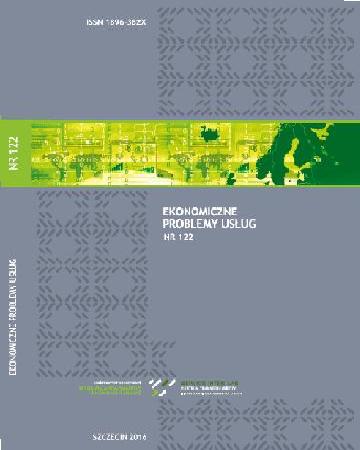
ISSN: 1896-382X
eISSN: 2353-2866
OAI
DOI: 10.18276/epu.2017.126/1-30



Issue archive /
nr 126 (1) 2017
Modele biznesu w internecie w kontekście Sharing Economy i Open Government Data
(Business models on the internet- in the context of sharing economy and open government data)
| Authors: |
Krystyna
Polańska
Uniwersytet Łódzki Wydział Zarządzania Katedra Informatyki |
| Keywords: | Sharig economy Open Govermnent Data e-business models |
| Data publikacji całości: | 2017 |
| Page range: | 9 (299-307) |
| Klasyfikacja JEL: | M13 M21 |
Abstract
The purpose of this article is to show that the currently arising business enterprises on the internet have been using the range of models already known for longer, to benefit from its operations in a virtual enviromnent. New business ideas conducted on the Internet did not create any new ways of monetizing original ideas and concepts. On the contrary - they all use a network link system, typically duplicating most common and proven models and mixing them. The new varieties mean also new terms, what is evident especially in the area of open data sets provided by the state and local administration.
Download file
Article file
Bibliography
| 1. | Archer, P., Dekkers, M., Goedertier, S., Loutas, N. (2013). Study on business models for Linked Open Government Data. ISA programme by PwC EU Services. European Union. |
| 2. | Ferro, E., Osella, M, (2012). Business Models for PSI Re-Use: A Multidimensional Framework. |
| 3. | W3C- EU PMOD Workshop. |
| 4. | GitHub (2011). Those are some big numbers. Pobrano z: https://github.corn/blog/841-those-are-some-big-numbers. |
| 5. | GitHub (2014). Whos.using GitHub? Pobrano z: https://government.github.com/community. Laudon. K.C., Laudon, J.P., Schoder, D. (2010). Wirtschaftsinformatik: Eine Einfuhrung, 2. |
| 6. | Auflage. Munchen: Pearson Studium. |
| 7. | Magalhaes, G., Roseira, C., Manley, L. (2014). Business models for open government data. Pro-ceedings of the 8th International Conference on Theory and Practice of Electronic Gov-ernance (s. 365-370) ACM. DOI: 10.1145/2691195.2691273. |
| 8. | Papińska-Kacperek, J. (2012). Analiza wybranych modeli biznesowych gospodarki elektronicznej XXI wieku. Zeszyty Naukowe Uniwersytetu Szczecińskiego. Ekonomiczne Problemy Usług, 87 (1), 315-325. |
| 9. | Papińska-Kacperek, J., Polańska, K. (2015). Analiza zaawansowania realizacji idei open government data w wybranych krajach. Zeszyty Naukowe Uniwersytetu Szczecińskiego. Studia Informatica, 37, 103-114. DOI: 10.18276/si.2015.37-08. |
| 10. | PARP (2017). Pobrano z: http://www.parp.gov.pl. |
| 11. | Pereira, G.V., Macadar, M.A., Luciano, E.M., Testa, M.G. (2016). Delivering public value through open government data initiatives in a Smart City context. Information Systems Frontiers, s. 1-17. DOI: 10.1007/s10796-016-9673-7. |
| 12. | Polańska, K. (2013). Sieci społecznościowe. Wybrane zagadnienia ekonomiczno-społeczne. War¬szawa: Oficyna Wydawnicza SGH. |
| 13. | Rappa, M. (2010). Business Models on the Web. Pobrano z: http://www.digitalenterprise.org/ |
| 14. | models/models.html. |
| 15. | Tennison, J. (2012). Open Data Business Models. Pobrano z: http://www.jenitennison.com/. Urząd Miejski w Gdańsku (2016). Otwarte dane w Miastach. Poradnik. |
| 16. | Zeleti, A.F. (2014 ). Business models for open data businesses. Proceedings of the 8th Internation¬al Conference on Theory and Practice of Electronic Governance, s. 543-546. DOI: 10.1145/2691195.2691299. |